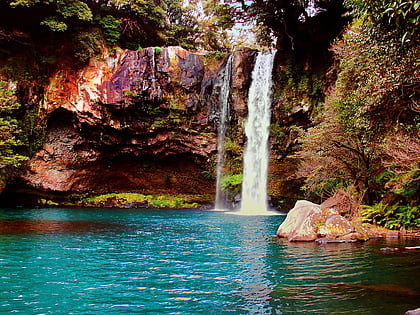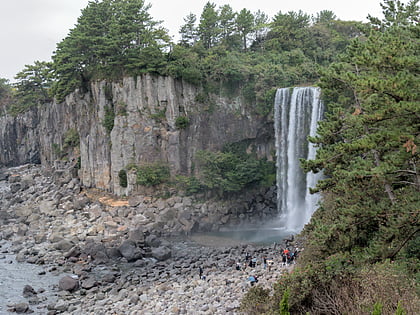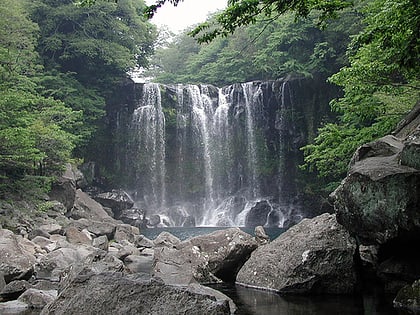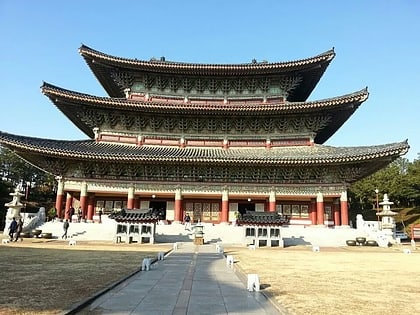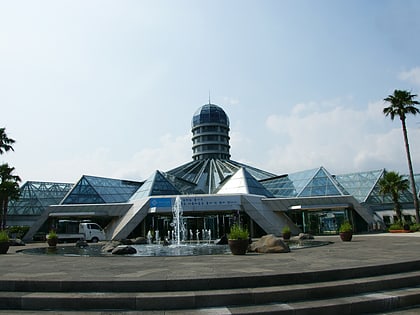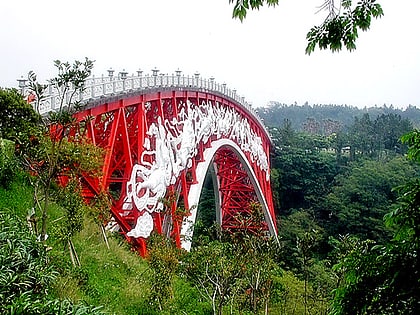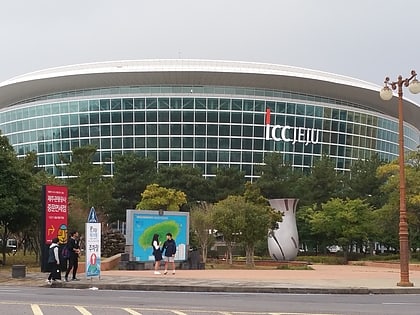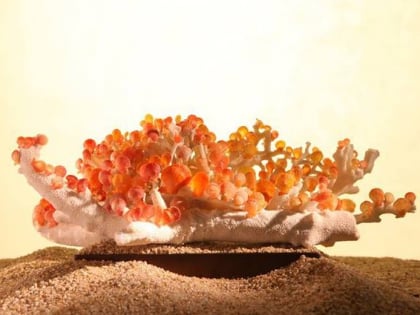Jeju World Cup Stadium, Seogwipo-Si
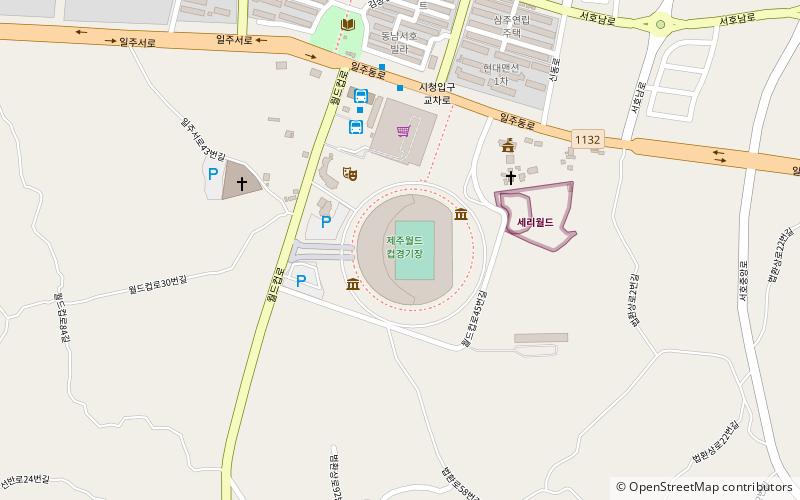

Facts and practical information
Nestled in the vibrant city of Seogwipo-Si on the picturesque island of Jeju, South Korea, stands the Jeju World Cup Stadium, a modern coliseum dedicated to the spirit of sportsmanship and competition. Built in 2001, this sport venue boasts a seating capacity of over 35,000 spectators and is renowned for its unique design inspired by the island’s natural elements, particularly the windswept volcanic craters that are a hallmark of Jeju's landscape.
The stadium's distinctive roof structure mimics the traditional boats of Jeju Island and is engineered to withstand the region's strong winds. This architectural marvel not only pays homage to local culture but also ensures that spectators can enjoy events in comfort, protected from the elements.
Jeju World Cup Stadium is etched in the annals of football history as one of the venues for the 2002 FIFA World Cup, co-hosted by South Korea and Japan. During the tournament, it played host to three group-stage matches, drawing fans from around the globe and spotlighting Jeju as a world-class tourist destination.
Today, the stadium is home to the Jeju United FC, a club that competes in the K League, South Korea's top football division. The venue is not only a temple for football aficionados but also serves as a multipurpose facility, hosting concerts, cultural events, and other sporting competitions throughout the year.
Visitors can explore the stadium through guided tours, which offer an insider's look into the players' locker rooms, VIP areas, and the pitch itself. The stadium also features a hall of fame and a museum dedicated to the 2002 World Cup, where enthusiasts can relive the glory of the games and learn more about the event's significance.
Jeju World Cup Stadium – popular in the area (distance from the attraction)
Nearby attractions include: Cheonjiyeon Waterfall, Jeongbang Waterfall, Cheonjeyeon Waterfall, Yakcheonsa.

